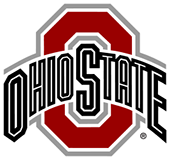Search
Local News
October is National Lewy Body Dementia Month
October is National Lewy Body Dementia Month
As the second most common type of dementia more support and awareness is needed
TOLEDO, OH, Oct. 17, 2024—1.4 million people nationwide live with Lewy body dementia (LBD) according to the Lewy Body Dementia Association. The critical need for more attention, research, and treatments for people with dementia with Lewy bodies (DLB). DLB is the second most common type of progressive dementia.
There are no treatments that can slow or stop the brain cell damage caused by dementia with Lewy bodies. Current strategies focus on helping with symptoms.
Lewy Body Dementia Awareness Month is an opportunity to raise awareness of this underdiagnosed but prevalent condition that can be devastating for patients and their loved ones. DBL is one of the causes of dementia, alongside other types of dementia like Alzheimer's disease and vascular dementia. LBD is a broad term that includes both dementia with Lewy bodies and Parkinson’s disease dementia.
DLB is a type of progressive dementia that leads to a decline in thinking, reasoning and independent function. Its features may include spontaneous changes in attention and alertness, recurrent visual hallucinations, REM sleep behavior disorder, and slow movement, tremors or rigidity.
Core symptoms of dementia with Lewy bodies include:
- Changes in thinking and reasoning.
- Fluctuating cognition is delirium-like.
- Recurrent well-formed visual hallucinations.
- REM sleep behavior disorder that involves acting out dreams.
- Spontaneous parkinsonism with slowness of movement, rest tremor, or rigidity.
Other symptoms may include:
- Trouble interpreting visual information.
- Malfunctions of the "automatic" (autonomic) nervous system, which controls automatic functions of the body, such as sweating, blood pressure, heart rate, digestion and sexual response.
- Memory loss may be significant, but less prominent than in Alzheimer's.
As with other types of dementia, there is no single test that can conclusively diagnose dementia with Lewy bodies. Currently, DLB is a "clinical" diagnosis, which means it represents a doctor's best professional judgment about the reason for a person's symptoms.
According to the Lewy Body Dementia Association, researchers have not yet found any specific causes of dementia with Lewy bodies. Most people diagnosed with DLB have no family history of the disorder, and no genes linked to DLB have been conclusively identified.
The hallmark brain abnormalities linked to DLB are named after Frederich H. Lewy, M.D., the neurologist who discovered them while working in Dr. Alois Alzheimer's laboratory during the early 1900s. Alpha-synuclein protein, the chief component of Lewy bodies, is found widely in the brain, but its normal function isn't yet known.
Support and resources are available for Lewy body dementia.
Lewy Body Dementia Association (LBDA) is a nonprofit organization providing information and assistance to individuals with the disease, caregivers and medical professionals. Call LBDA at 800.539.9767.
The Alzheimer's Association provides resources about Alzheimer's and other dementias and gives referrals for local support services. A 24/7 Helpline is available at 800.272.3900.
The Social Security Administration (SSA) has a "compassionate allowance" program in which workers diagnosed with Lewy body dementia can qualify for Social Security disability benefits. Call the SSA at 800.772.1213.
The National Institute on Aging provides details on the signs and symptoms of Lewy body dementia, as well as treatment and care options.
There are 236,200 Ohioans 65 and older living with Alzheimer's disease, according to the Alzheimer’s Association 2024 Alzheimer’s Disease Facts and Figures. More than 4,900 Ohioans died from Alzheimer’s in 2021. A total of 414,000 Ohio caregivers provide 624 million hours of unpaid care each year valued at over $11.4 billion.
To learn more about Alzheimer’s or other dementia and to access free local support and resources, visit alz.org/nwohio or call the Northwest Ohio Chapter at 419.537.1999 or the 24/7 Helpline at 800.272.3900.








